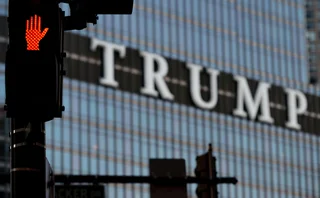
Harbouring doubts on close-out netting
Derivatives safe harbours are viewed as crucial to close-out netting. However, they are under siege from the US Congress, where legislators have tried to undo the protections given to market participants when a counterparty defaults. Mark Pengelly reports

Close-out netting is a process market participants hope never to undertake. Nevertheless, it is a mainstay of the derivatives market – and one the industry is increasingly being forced to defend against academic and congressional attack. At the end of April, an amendment to the Senate financial reform bill proposed scrapping the safe harbours for derivatives completely – a move industry participants say would be disastrous for the market.
Close-out netting means that if a derivatives user goes
Only users who have a paid subscription or are part of a corporate subscription are able to print or copy content.
To access these options, along with all other subscription benefits, please contact info@risk.net or view our subscription options here: http://subscriptions.risk.net/subscribe
You are currently unable to print this content. Please contact info@risk.net to find out more.
You are currently unable to copy this content. Please contact info@risk.net to find out more.
Copyright Infopro Digital Limited. All rights reserved.
As outlined in our terms and conditions, https://www.infopro-digital.com/terms-and-conditions/subscriptions/ (point 2.4), printing is limited to a single copy.
If you would like to purchase additional rights please email info@risk.net
Copyright Infopro Digital Limited. All rights reserved.
You may share this content using our article tools. As outlined in our terms and conditions, https://www.infopro-digital.com/terms-and-conditions/subscriptions/ (clause 2.4), an Authorised User may only make one copy of the materials for their own personal use. You must also comply with the restrictions in clause 2.5.
If you would like to purchase additional rights please email info@risk.net
More on Regulation
The Emir error reports that cost banks millions
Dealers lambast onerous EU requirement to notify clients of all errors and omissions
Basel stops short on wrong-way risk
New guidelines a step in right direction, but experts warn they won’t prevent another Archegos
Trump 2.0 bank supervision: simpler but no soft touch?
Republican FDIC vice-chair Travis Hill wants more focus on financial risk instead of process
Iosco mimics industry codes to tackle pre-hedging dilemma
Advocates breathe sigh of relief, but Iosco release carries suggested restrictions
Ice’s AFX swoop shines spotlight on Ameribor prospects
CEO John Shay steps down after exchange group buys firm for mortgage and index synergies
Barr’s Fed exit likely to delay, but not destroy, Basel III
Market risk, op risk and leverage ratio all in the sights of Barr’s potential successors
FCMs call for more oversight of self-clearing CCP members
Clearing firms worry that PTFs and market-makers joining CCPs en masse will increase systemic risk
Complex EU active account reporting could drive trades out of UK
Draft Emir rules might not force large volumes to move to EU, but will make compliance difficult







